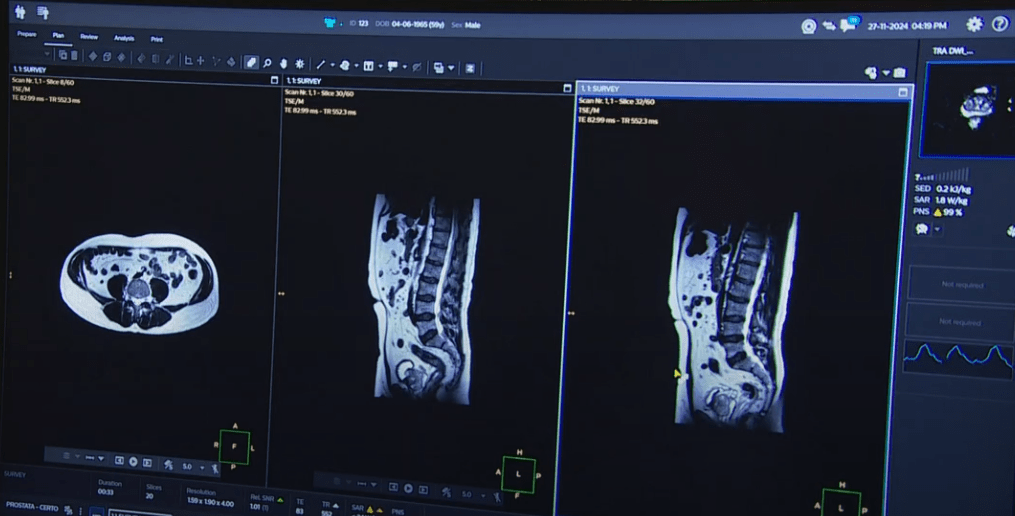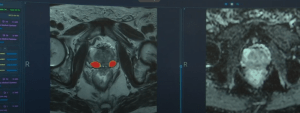“Despite being one of the most prevalent forms of cancer, prostate cancer (PCa) shows a significantly high survival rate, provided there is timely detection and treatment. Computational methods can help make this detection process considerably faster and more robust. However, some modern machine-learning approaches require accurate segmentation of the prostate gland and the index lesion. Since performing manual segmentations is a very time-consuming task, and highly prone to inter-observer variability, there is a need to develop robust semi-automatic segmentation models. In this work, we leverage the large and highly diverse ProstateNet dataset, which includes 638 whole gland and 461 lesion segmentation masks, from 3 different scanner manufacturers provided by 14 institutions, in addition to other 3 independent public datasets, to train accurate and robust segmentation models”, this is the summary of the paper “Analysis of domain shift in whole prostate gland, zonal and lesions segmentation and detection, using multicentric retrospective data“, co-authored by our researchers Nuno M. Rodrigues, Sara Silva and the LASIGE former member Leonardo Vanneschi and published on the top 10% journal Computers in Biology and Medicine in 2024.
This work served as a basis for further research, and the researchers are currently working on another article “Effective reduction of unnecessary biopsies through a deep-learning-assisted aggressive prostate cancer detector — a feasibility study”, under review in Scientific Reports, a Nature’ journal.
The use of Artificial Intelligence can detect prostate cancer earlier, reducing the number of unnecessary biopsies, and helping provide treatment as quickly as possible, increasing the chance of successful recovery for patients.
These studies attracted the attention of journalists from the TVI television channel, which produced the following TV programme at the end of 2024. Just click on this image:
Photo credits: TVI player


